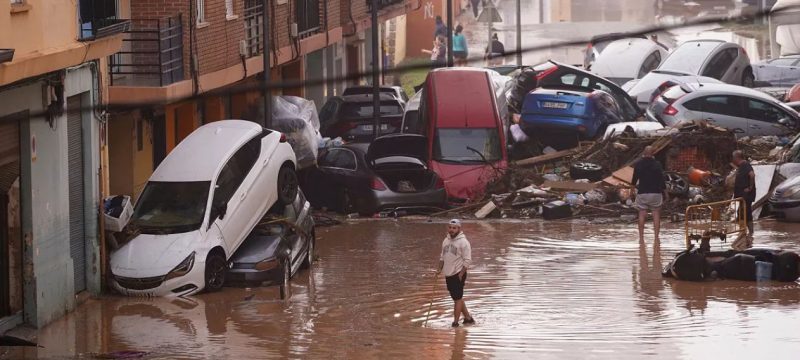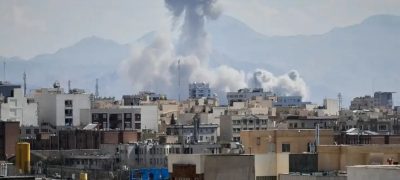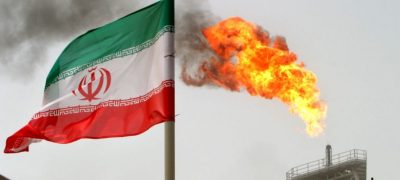Spanish rescuers scrambled on Wednesday to save people stranded by torrents of muddy water in floods that have claimed at least 64 lives in the country’s eastern region.
Prime Minister Pedro Sanchez called for citizens to remain cautious as the threat persisted and declared three days of mourning for what has become a rare national disaster.
Since the start of the week, Spain has been battered by heavy rain and strong winds after a storm formed over the Mediterranean, causing flooding across eastern Valencia and parts of southern Andalusia.
Read more: Storm Approaches as Floods in the Philippines Claim 9 Lives and Leave Others Trapped on Roofs
For up-to-date coverage, follow our Google News channel online or on the app.
Valencia’s emergency services announced a preliminary death toll of 62 on X, noting that bodies were still being found and identified.
Two additional fatalities were reported in the neighboring region of Castilla-La Mancha, according to regional leader Emiliano Garcia-Page, and the death toll could rise as some individuals remain missing.
An AFP journalist observed cars scattered and stacked on roads near Valencia’s Mediterranean coast following a mudslide.
Locals used buckets to remove mud from their homes and waded through waist-deep water to salvage belongings.
In Ribarroja del Turia, just outside Valencia, councilor Esther Gomez reported that workers were stranded overnight in an industrial area with no way to reach them as streams overflowed.
“It’s been a long time since we’ve seen something like this, and we’re frightened,” she told AFP.
According to Spain’s meteorological service AEMET, the town of Chiva, west of Valencia, recorded 491 mm of rain within eight hours on Tuesday – nearly the equivalent of a full year’s rainfall.
‘Spain Weeps’
Prime Minister Pedro Sanchez declared that aiding the flood victims was the government’s “absolute priority.” In a televised address, he expressed, “All of Spain mourns with you… We won’t leave you behind.”
He emphasized that the crisis was far from over, vowing that “all necessary resources” would be deployed for as long as required to recover from the tragedy. Sanchez also informed King Felipe VI of the three-day mourning period starting Thursday, according to government minister Angel Victor Torres.
King Felipe expressed his “devastation” on X, offering “heartfelt condolences” to victims’ families and commending emergency teams for their “tireless” efforts.
Neighboring nations, including Portugal, Germany, Italy, and Ukraine, extended their condolences and support.
Flooded roads and damaged phone lines in the Valencia region have complicated rescue operations. According to energy company Iberdrola, 155,000 homes in the area remain without power, and 500 workers have been dispatched to restore electricity.
The European Union activated the Copernicus satellite system to support Spanish rescue teams, and Commission Chief Ursula von der Leyen said the EU also offered civil protection reinforcements.
Defense Minister Margarita Robles reported that over 1,000 troops, supported by helicopters, were deployed in response to what she called “an unprecedented phenomenon.” Emergency shelters, including fire stations, are housing survivors in Valencia.
Transport disruptions remain widespread, with both air travel and the high-speed rail line between Valencia and Madrid suspended.
This flood disaster is Spain’s deadliest since August 1996, when 86 people lost their lives in Aragon, near the Pyrenees.
Rain is expected to persist, with Barcelona under the highest alert on Wednesday evening, according to the Catalonia region’s weather service.
Meteorologists attribute the storm to cold air moving over the warm Mediterranean, creating intense rain clouds, which is typical for this season. Scientists warn that human-induced climate change is leading to more frequent, intense, and prolonged extreme weather, which can outpace the effectiveness of current defenses and contingency plans, even in a relatively wealthy country like Spain, noted Leslie Mabon, a senior lecturer in environmental systems at Open University in the UK.









